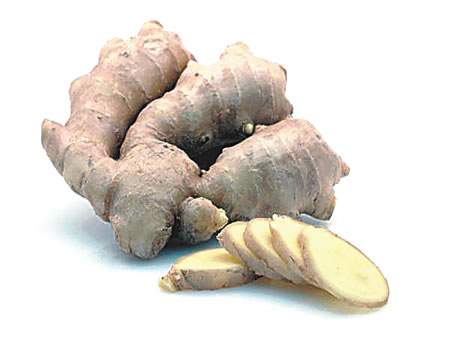But these supplements apparently increase health risks, including dehydration, anxiety, headache, sleep disturbances, caffeine intoxication and withdrawal syndrome, dependence and overworking of body systems and leading to a search for alternative traditional herbal supplements like ginger which has both dietary and medicinal values.
In a new study, researchers have analysed ginger drinks prepared using ginger rhizomes to determine its nutritional values to ascertain their potential for enhancing sports performance.
It analyses two versions of ginger drinks prepared using ginger rhizomes. The ginger rhizome was used to prepare different ginger concentration. Cubed sugar was added to the six different ginger concentrations.
It involved Muhammed, Muhammed, A; Dominic, Olufunmilola, L.; Seidina, Iliasu, Y. and Talabi, Adetayo, E. from the University of Ilorin, in collaboration with Sarpong, Emmanuel, O. from the University of Education, Winneba, Winneba, Ghana.
Nutritional values of the ginger drinks were similar — all six samples contained protein, fat, carbohydrate, vitamins and essential minerals; the energy value was 168 kj/100ml, which was richer than most energy/sports drinks commonly consumed in Nigeria.
These pointed out that ginger drink might effectively enhance glucose supply for ATP synthesis, delay fatigue, reduce exercise-induced oxidative stress, boost recovery and sports performance.
According to them, “Ginger drink is nutritious and might reliably enhance sports performance. Ginger drink with two cubes of sugar had less pH implying more potential for sports performance. A follow-up study is ongoing to ascertain the effects of ginger drink on the anaerobic and aerobic capacity of athletes. It was in the May edition of the journal, Medicine & Science in Sports & Exercise.
However, they said that a follow-up study is ongoing to ascertain the effects of ginger drink on the anaerobic and aerobic capacity of athletes.
Derived from the root of the ginger plant Zingiber officinale, ginger can be consumed fresh, powdered, dried, in oil form or as a juice, giving the science-backed ingredient added versatility to impact consumers’ bodies and brains.
Among ginger root’s chemical components, the most highly touted and therapeutic is gingerol, the oily resin from the root. That natural oil is responsible for ginger’s unique, spicy flavour and fragrance.
Among ginger root’s many benefits are a few that are particularly helpful for endurance athletes, such as offering an immunity boost, aiding digestion and acting as an anti-inflammatory and anti-pain agent (possibly reducing pain and soreness).
It doesn’t appear to harm the stomach or kidneys, as long as doses are taken in normal or recommended amounts, no more than four grammes of ginger per day.
In fact, data published in Phytotherapy Research indicated that a four-gramme-dose of ginger for five days pre-exercise was more effective than two grammes for accelerating recovery of muscle strength following muscle damage.
The researchers had randomly assigned 20 non-weight trained men and women to five days of ‘loading’ with either ginger or placebo prior to an exercise protocol that would induce muscle damage.
The results showed that one repetition maximum lift was decreased in both groups 24 hours after the exercise protocol, but this was significantly improved in the ginger group at 48 hours. On the other hand, it was only improved at 72 and 96 hours post-exercise in the placebo group.
However, post-exercise was actually impaired following ginger supplementation, and therefore, athletes who rely on flexibility such as gymnasts may be negatively impacted by ginger.
They declared that although there remain many unknowns, the results of this study, combined with multiple others, make it clear that ginger does indeed have an influence on basic measures of muscle function in relation to exercise, and further studies in this area are needed.
Meanwhile, some energy drinks contain a range of exotic super fruit flavours and herbs such as lemon and ginger, pomegranate, acai, tropical Berry, tropical coconut, ginseng and Ginkgo biloba.
In 2017, a study published in Nutrients said that supplementation with pomegranate juice may reduce oxidative stress and improve recovery time after intense resistance training.
Weightlifters who consumed pomegranate showed a reduction in oxidative stress both immediately after the training session and up to 48 hours afterwards, discovered researchers from Sfax University, Tunisia.
The researchers also found that pomegranate juice accelerated the recovery kinetics of oxidative stress markers, indicating that the supplement might improve recovery time in athletes.
Energy drinks are not bad, but they are also not to be used during exercise because the combination of fluid loss from sweating and the diuretic quality of the caffeine can lead to severe dehydration. Excessive caffeine can also negatively affect attention and concentration.






